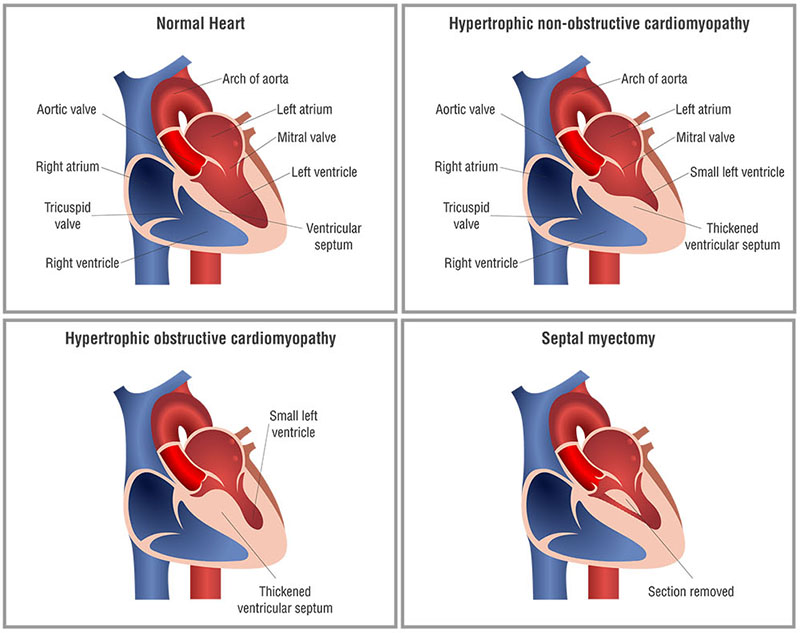Hypertrophic cardiomyopathy
A condition in which heart muscle becomes abnormally thick making it harder for the heart to pump and the heart to relax. The LV cavity is also reduced in size. This condition often goes undiagnosed as most of the patients are asymptomatic. Possible signs and symptoms of HCM are shortness of breath or chest pain during exercise, syncope during exercise, palpitation or / and cardiac murmur. Cause of HCM is mostly genetic.

Hypertrophic cardiomyopathy is of 2 types
- Obstructive – It restricts the blood flow out from the heart (HOCM).
- Non obstructive – It does not restrict the blood flow out from the heart.
Investigation to diagnose hypertrophic cardiomyopathy includes ECG, Echocardiogram, Treadmill, 24 hours Holter monitoring, cardiac MRI and coronary angiogram.
Treatment includes
- Medications, beta blockers to reduce the force of the contractility of the heart and also to control the heart rate thereby avoiding arrhythmias.
- Non-surgical treatment includes alcohol ablation.
- Surgical treatment includes septal myomectomy which involves the resection of the hypertrophied muscle in the ventricular septum. If mitral valve leak is present, mitral valve repair / replacement needs to be done.
Post-surgery complication includes heart block needing pacemaker implantation.
Since this disease runs in the family (genetic), it is ideal that the patient’s siblings also undergo regular monitoring with echocardiogram.
Video





